In the frantic rush of City life, finding peace and solitude seems as likely as finding hen’s teeth on the Central Line. From the scream of ambulances to the drone of overhead planes, there’s no escape from a constant barrage of noise. Desperately seeking peace and solitude, I decided it was time to take refuge at the Amaravati Buddhist Monastery for some well-deserved rest and recuperation.
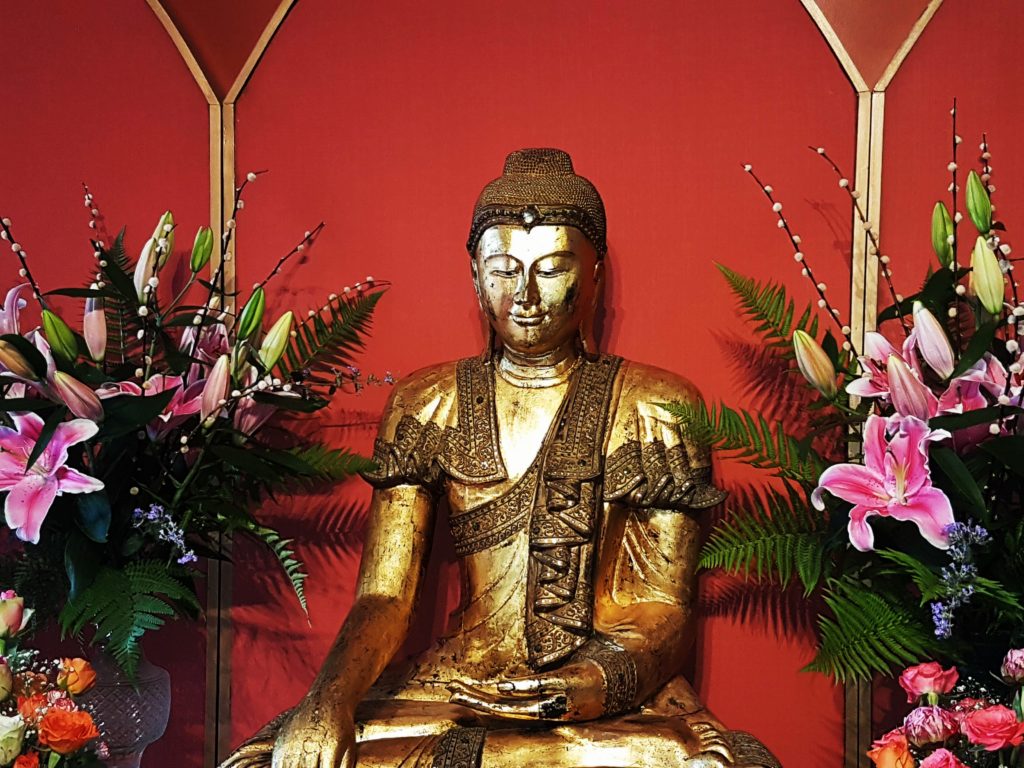
buddha display at amaravati buddhist monastery
What is the Amaravati Buddhist Monastery?
The Amaravati Buddhist Monastery was established in the eastern end of the Chiltern Hills in the early 1980s and was inspired by the Thai forest tradition and the teachings of Ajahn Chah, a Thai Monk and renowned Dhamma teacher. It remains a full working monastery and is also open to visitors for workshops and retreats aimed at developing mindfulness and exploring spiritual teachings.
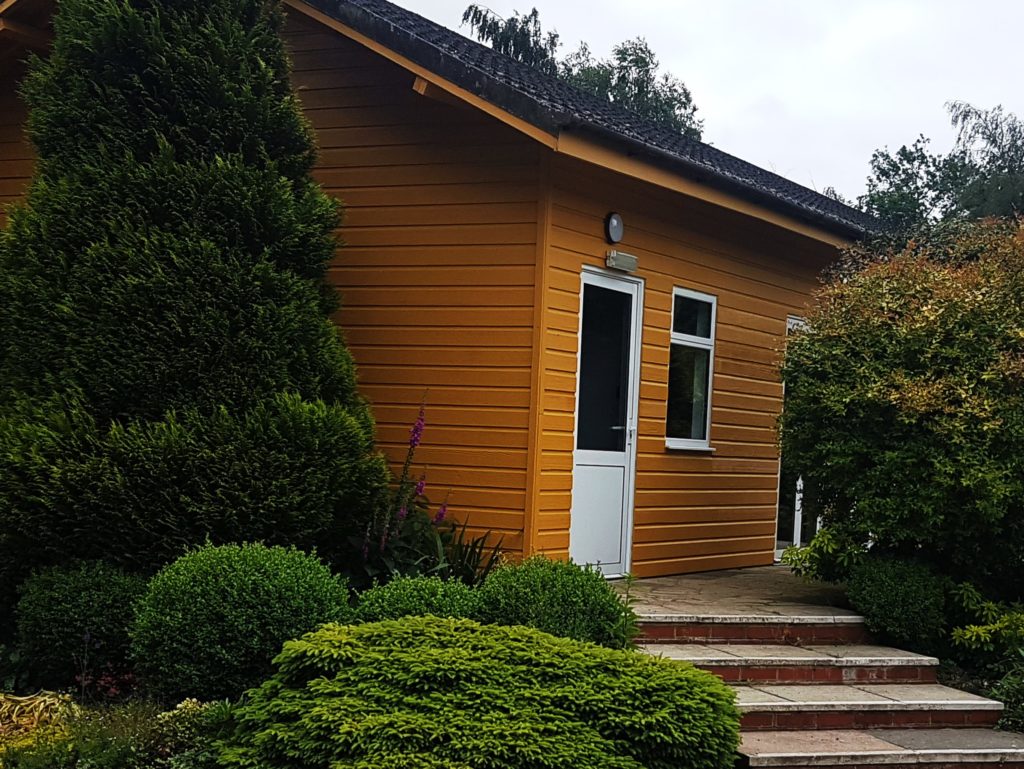
accommodation at amaravati buddhist monastery
Located a ten minute taxi ride from Berkhamsted station, the Amaravati Buddhist Monastery is nestled in rolling, green fields and at first glance looks more like a complex of holiday cottages rather than a centre for spiritual enlightenment. However there’s no shrieking children or fractious parents here – just a few solitary souls wandering peacefully around the grounds. The silence is deafening.
Daily life at the Amaravati Buddhist Monastery
Feeling like an intrusive presence in this land of serenity, I duck into the dining hall where a buffet is in full swing. Amidst the lentils, chickpeas and noodles, I note with wry amusement that donuts are also on offer. Plonking myself down on a chair to eat, I wince when I notice the rest of my companions sitting on the floor with ram-rod straight backs. But fortunately there’s a complete absence of judgement here and nobody’s bat an eye at my slouched posture.
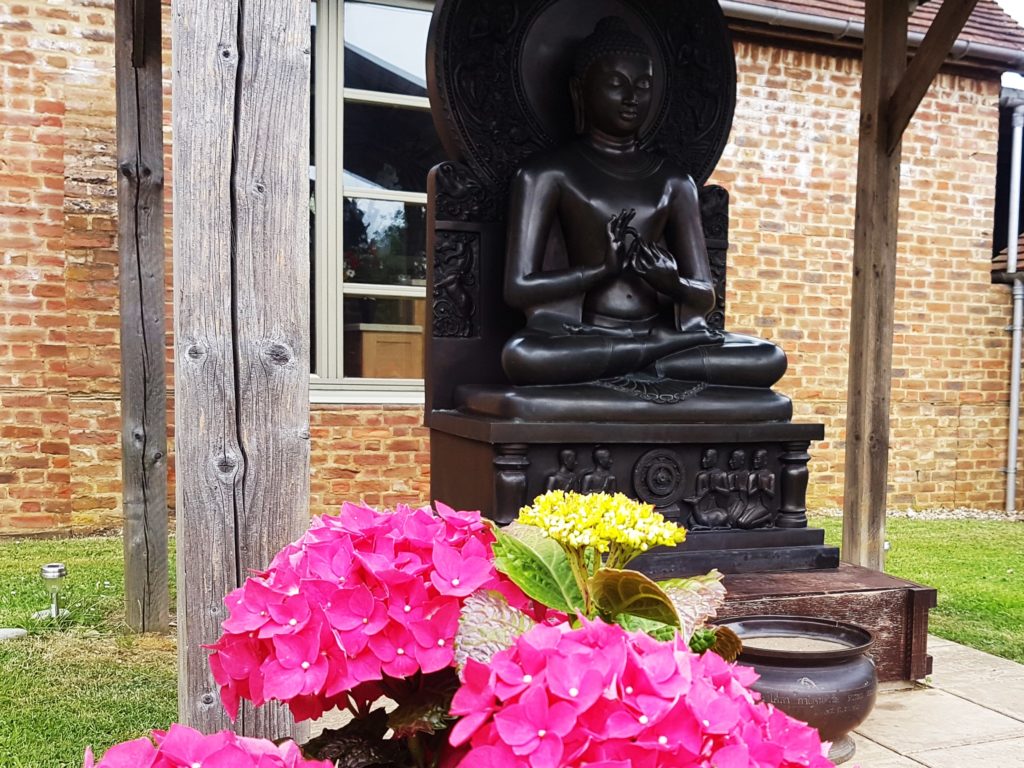
sculpture in the grounds of amaravati buddhist monastery
Feeling replenished and with an hour to kill before the meditation workshop, I take a wander round the complex and stumble upon the library which is crammed to the rafters with spiritual books – all of which have been donated to the Monastery. There’s also a range of books in the dining hall that visitors can help themselves to in exchange for a small donation including incredibly useful pocket books on mindfulness to help navigate the stresses of the working day.
A gong sounds at 1.50pm summoning me to the sun-streamed temple room where floor cushions are arranged in perfect symmetry. Chairs are also thoughtfully laid out for those lacking in strong core muscles. My fellow meditators are a highly diverse mix of people from burly, rugby players to young fresh-faced girls straight out of school.
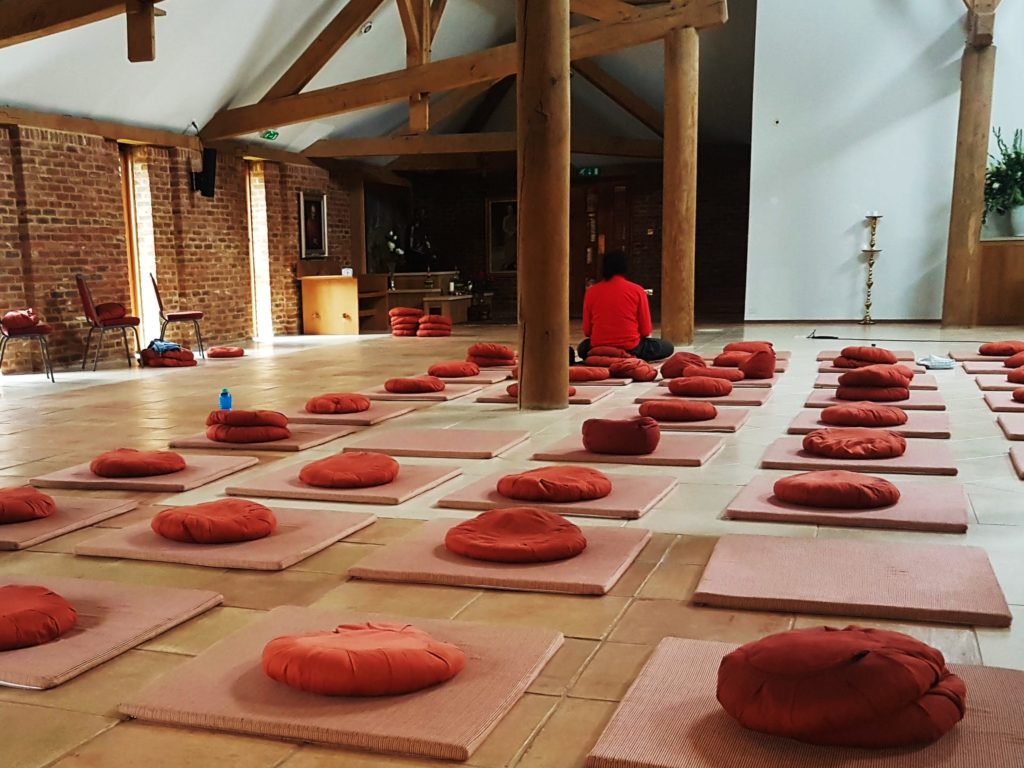
amaravati buddhist monastery temple room
An air of calm descends as we’re watched over by one of the monks. But despite the relaxed ambience, I start to feel anxious. I’ve never been good at meditation – ten minutes maximum is my limit so the thought of a two-hour workshop fills me with dread. However, despite my initial misgivings, I find myself relaxing to the gentle drone of our meditation instructor.
During the workshop, we’re instructed that meditation is simply a way to focus attention and can be used to enhance all activities from cleaning the house to building a new monastery. The workshop lessons are designed to give simple, straightforward advice and don’t feel in any way “preachy.” In addition to focus, simplification is the buzz word – applicable to all aspects of our lives: from managing emails and social media to planning our finances and even grocery shopping. Ever in touch with daily life, there’s even a nod to the World Cup semi-final playing that evening.
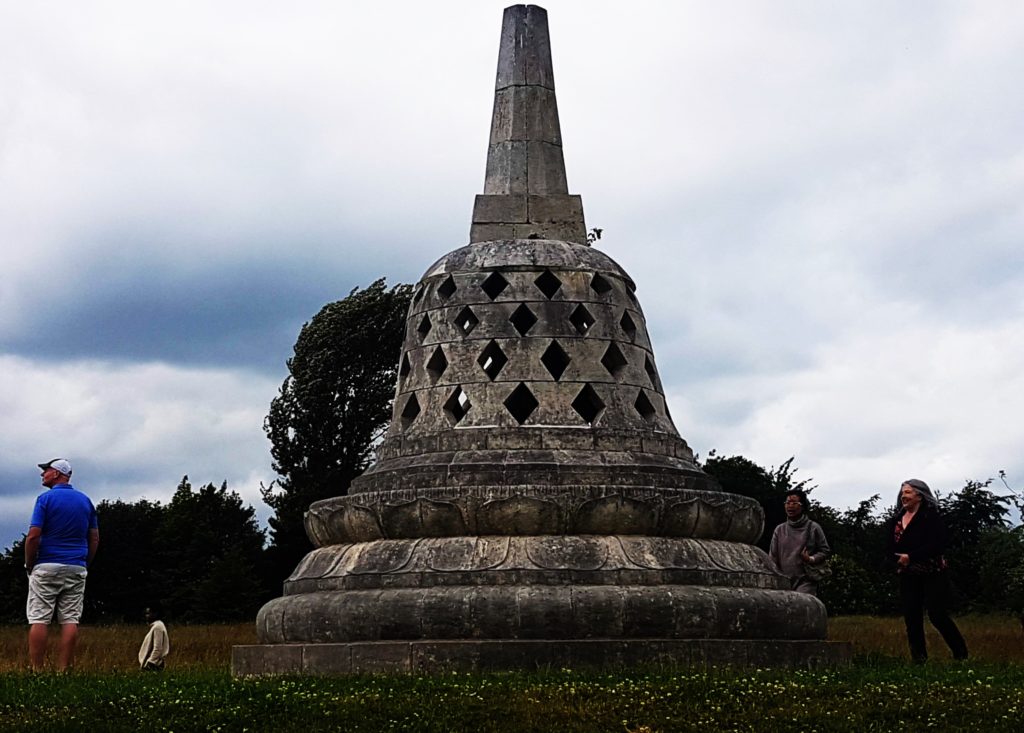
amaravati buddhist monastery grounds stuppa
Moments later, I jolt awake with a start as my head nods forward. A quick glance at my watch indicates that I’ve been asleep for the past fifteen minutes. Who would have thought I would be relaxed enough to nod off so soon? Determined not to miss anymore of the workshop, I’m relieved to hear that part two involves a walking meditation outside in the fields.
There’s a strangely spectral quality as we move around in slow motion, feeling each step mindfully as we navigate the long grass. At first it’s difficult to switch off from my racing thoughts but focussing on the sights, smells and sounds of our environment helps to keep me focussed on the present moment. In the final half hour of meditation back in the Temple, I find myself strangely eager to return to my place of inner calm and trust that this time I won’t snooze through the final act.
